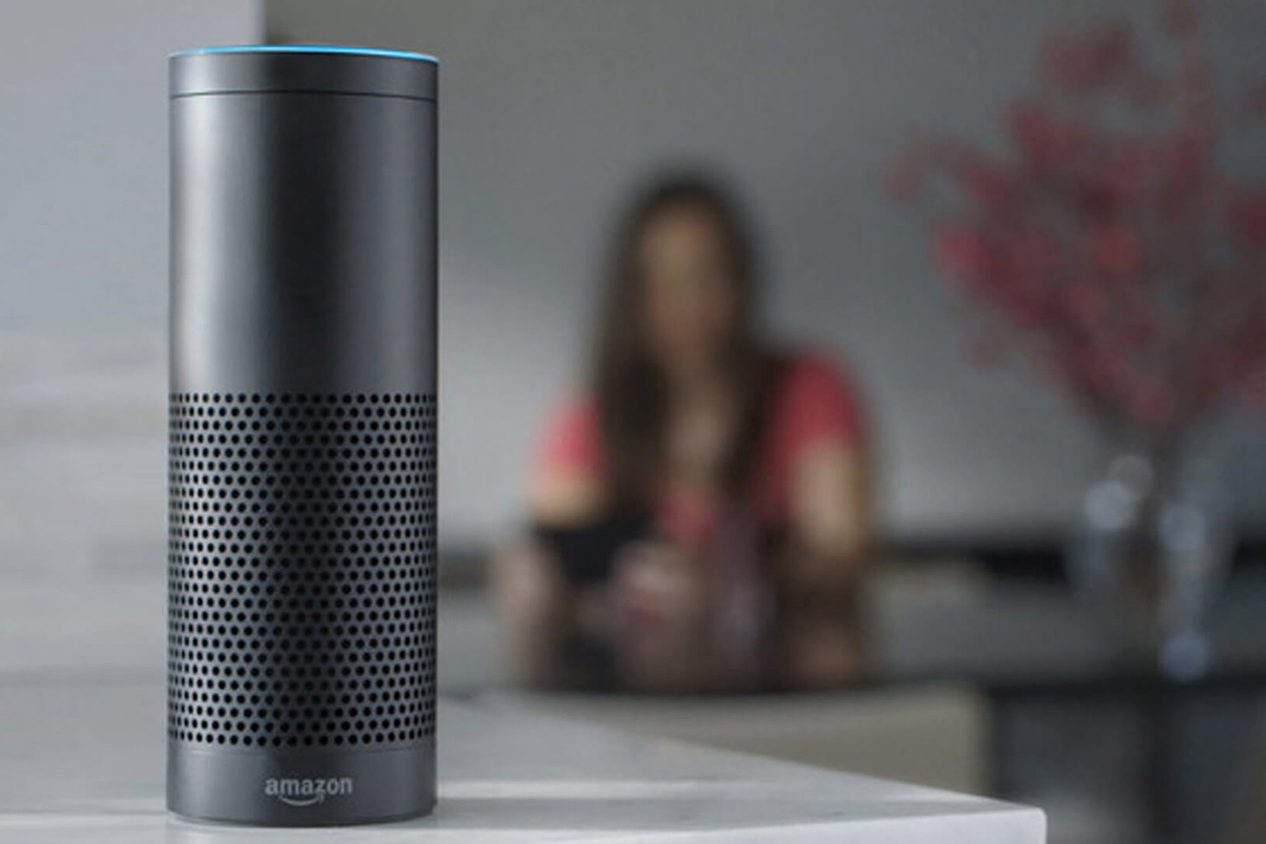Recently we’ve seen some news developments that underscore how rapidly voice technology is growing as a way for people and brands to accomplish increasingly sophisticated tasks. Companies are evolving their strategies to accommodate the rising popularity of voice. It’s time to take a closer look at adapting your digital marketing for voice search. These examples show how big companies such as Amazon, Google, and Samsung are accommodating the rise of voice:
Voice Assistants Take Hold
Research firm Parks Associates recently announced that the number of voice assistants such as Amazon Echo and Google Home more than doubled from 2015 to 2016. According to Parks Associates, the adoption rate of smart speakers with voice assistants grew from 5 percent of U.S. broadband households in Q4 2015 to 12 percent in Q4 2016. Parks Associates Research Analyst Dina Abdelrazik said, “Voice interfaces are advancing due to continued improvements in machine learning and natural language processing, paired with the prevalence of portable devices. Apple increased consumer familiarity of voice control with its introduction of Siri in 2011, but the later-to-market Amazon Alexa has taken a clear lead in this category.”
Voice assistants are taking hold for a number of reasons, and Parks Associates cites an important one — advancements in forms of artificial intelligence, which make voice assistants more effective at interpreting complex commands. The growth of voice assistants, along with the popularity of mobile devices, is helping fuel a rise in voice search. Voice search has quickly developed from a topic of research to a reality. Consumers, armed with mobile devices, are finding that they can ask for more complex things to buy, find places to go, and decide on things to do with increased sophistication, by searching with more conversational questions such as “When are the Cubs hosting the St. Louis Cardinals next at Wrigley Field?” or “Where can I find deep dish pizza with free parking on Chicago’s north side?”
Samsung Launches Bixby
On March 20, Samsung announced the launch of its own voice assistant, Bixby, which gives Samsung an entree into a field that includes tools such as Amazon’s Alexa, Microsoft’s Cortana, and Apple’s Siri. Samsung claims that Bixby will feature a better user interface that combines touch and voice and an improved ability to interpret commands. As Samsung noted in a press release, “Bixby will be smart enough to understand commands with incomplete information and execute the commanded task to the best of its knowledge, and then will prompt users to provide more information and take the execution of the task in piecemeal. This makes the interface much more natural and easier to use.” Samsung will make Bixby available with its Galaxy mobile device and plans to expand Bixby to TVs and other appliances.
Google Changes AdWords
Recently, Google announced some changes to AdWords exact match close variants, which will affect advertisers’ keyword strategies for voice search. Close variants, which Google introduced in 2012, is a feature that makes it possible for an ad to appear in a search result even for searches that contain misspellings, plurals, and close matches to keywords that an advertiser is bidding on. Now, AdWords is expanding the feature to include variations in word order and to ignore function words such as “in” and “for.”
Google suggests this change will benefit advertisers by decreasing the amount of keywords needed in a pay-per-click (PPC) campaign, which is true. But the expansion of close variants is also Google’s way to accommodate the rise of voice search. Here’s why:
- Voice searches use more conversational language.
- Conversational language can include many variations, such as the use of who, what, where, when and why questions.
- Because of the conversational nature of voice search, campaign managers might feel compelled to over-build their keyword list in their account in order to cover all possible variations of voice searches that fit their brand. But Google has mitigated against over-building keyword lists by making word order and function words irrelevant. A keyword bid will match for “Flights to Chicago,” “flights in Chicago,” “flights for Chicago,” and so on.
- In other words, now advertisers do not need to worry about building out exact match keywords in a variety of orders or even include every function word. Advertisers still need to focus on conversational questions including what, where, when, and why, as well as long-tailed queries. But the variations in keywords will now be minimized.
It’s obvious brands need to adapt their paid and organic search strategies to accommodate the use of voice search. In a recently published blog post, we discuss some of the key ways that businesses need to adapt their pay-per-click (PPC) strategies for voice search. Check out our post and contact us to discuss how we can help you adapt your digital marketing for voice search.
Image source: Digital Trends
